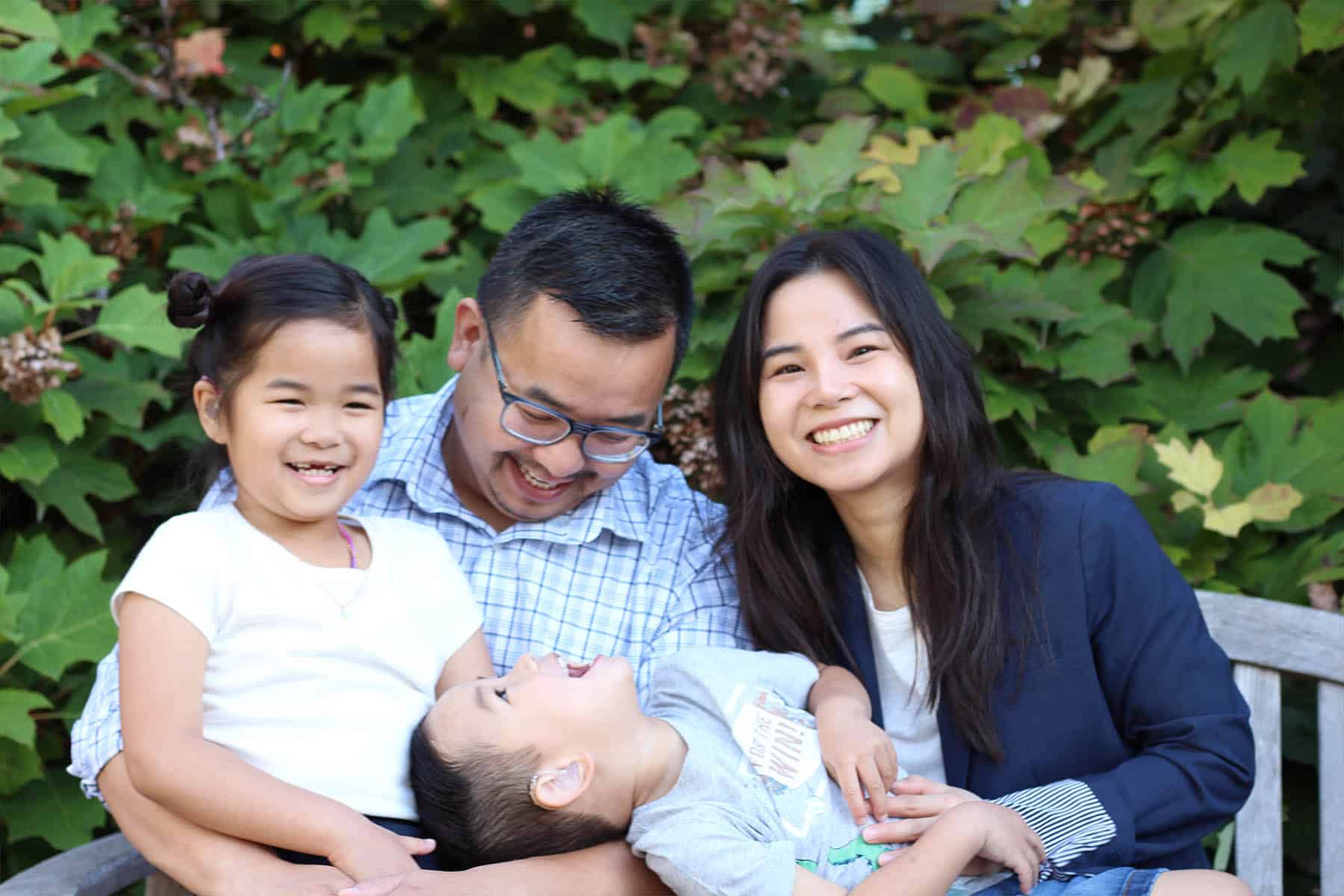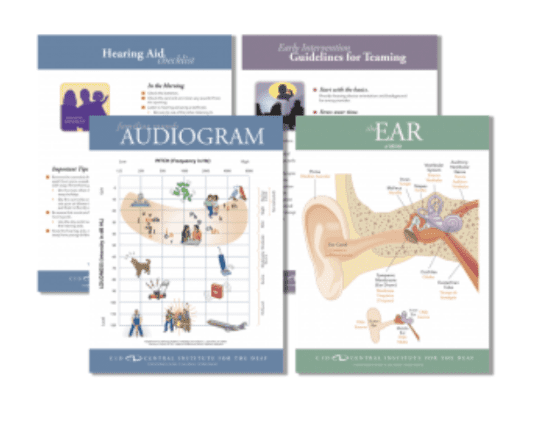When families are given a hearing loss diagnosis, their world shifts to a state of shock. Everything from this moment forward will change: their priorities, the vision for their child’s future, their schedules, etc. Not to mention the amount of information these families must learn.
We as professionals are a helpful resource to provide crucial information such as, type and degree of hearing loss, equipment, anatomy of the ear, language development, etc. However, even with family, friends, and professionals, there is still a very important component missing for these families: understanding from experience. Hosting parent support groups with families of children with hearing loss can fill this gap.
There are 3 parts to family education/support:
- Sharing of Knowledge (Education)
- Involvement in Planning/Implementation (Carry-Over)
- Hands-on practice with techniques and activities
- Parent-to-Parent Support (Support)
But why add this 3rd component? Parents of children with hearing loss generally are at greater risk for elevated stress and depression which can then impact their ability to care for their children. These parents could also have lower self-efficacy (i.e. lower confidence that they can competently raise their children). The type of stress varies over time; it can change from healthcare and information at the time of initial diagnosis to education and support as their children get older (Zaidman et al., 2016).
Creating and providing a network of parents going through similar struggles gives these families the opportunity to receive empathy, increase their confidence, and let them know that they are not alone in their journey and/or daily struggles.
So how can we do this?
On an individual level:
- Check the family’s support system (“What/who is your support system?”).
- Connect them with others (“I have another parent with a similar situation that I think you would enjoy talking to. Would you like me to pass along your contact information?”).
- Include multiple family members (“Dad/Grandma is welcome to join our sessions anytime!”).
- Do energy check-ins (“How’s your energy level today?”).
- Give homework to parents too! (“Your job over the next week is to do something every day for 5 minutes that is just for you.”).
On a group level:
- Create a school-wide support group for your clinic or school.
- Create a support group for your specific class and consistently meet. For example, if pick-up is at 3:30, meet with the parents on the 3rd Friday of every month from 3:00-3:30.
- Send out a survey with discussion topics for the families to choose from. This will help make these topics more applicable and interesting to them. (examples: behavior management, sensory experiences, entering the public school system).
- Let the families do the talking! We as the teachers are simply meant to be moderators and start the conversation. Let the families take the lead, add information, and support each other.
The parents themselves can be the ultimate resource!

Carmen Martinez is a speech-language pathologist at Memphis Oral School for the Deaf (MOSD), where she facilitates the Sound Transitions program. In this role she provides developmental therapy, listening and spoken language training, and parent support to families of children who are deaf and hard of hearing ages 1-3. She also leads MOSD’s parent support group, PEP Talk. Carmen received her bachelor’s degree in Communication Disorders at Murray State University and her master’s degree in Speech-Language Pathology at the University of Memphis.












